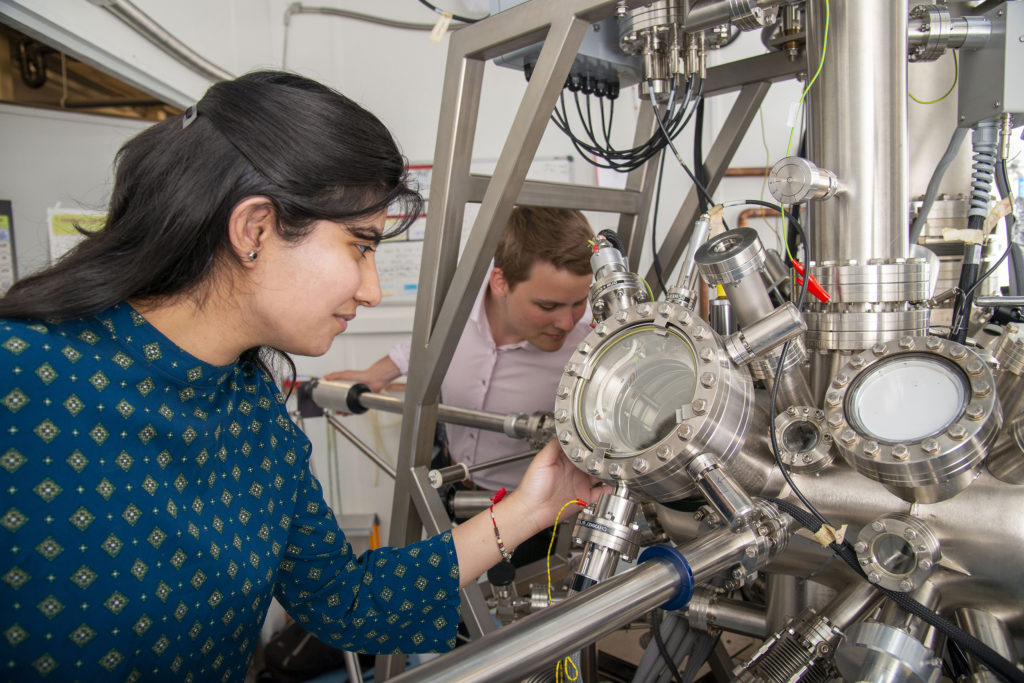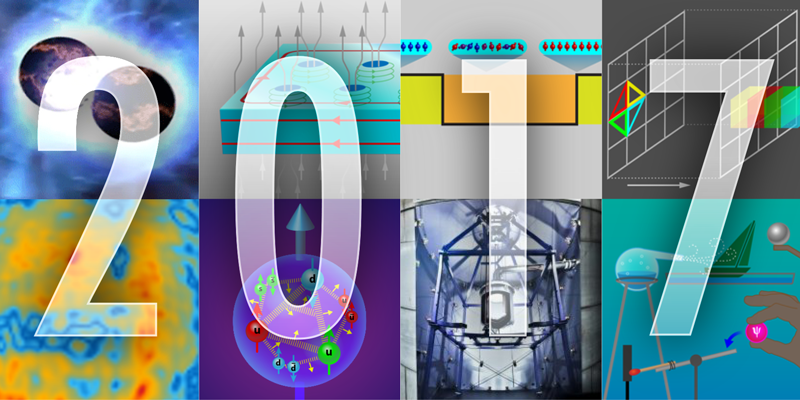- Home
- Research
Research
We are investigating low dimensional correlated electron systems using primarily scanning probe microscopy and spectroscopy.
Current research topics include:
- Understanding the intrinsic nature of charge ordered phases and their interplay with other electronic phases, such as superconductivity
- Using strain, thickness and space charge doping to tune electronic ground states, including charge density waves, superconductivity and topological phases
- Investigate novel electronic properties emerging in artificial few layer heterostructures
- Developing new instrumentation
Materials of interest include transition metal dichalcogenides, cuprates, iron pnictides, graphitic materials and specifically designed functional electronic systems.


Our prime experimental techniques are scanning tunneling microscopy (STM) and spectroscopy (STS) in combination with atomic force microscopy (AFM). We are operating three commercial instruments in ultrahigh vacuum (UHV) and variable temperature, two of them combining STM and AFM. An Omicron LT-STM is equipped with RHEED, LEED, XPS, a dedicated hydrogen cracker, an ion gun and a range of deposition sources. Two SPECS JT-STM, one standard and one with a 3 Tesla magnetic field plus a dedicated hydrogen cracker, an ion gun and a range of deposition sources. We also have two home-built instruments, one STM operating in a He3 cryostat reaching 0.4K, and a combined STM/AFM under final assembly in a variable temperature UHV system with a vector magnet (4T/9T). Our laboratory further features several preparation chambers, including a glove box and an UHV chamber to exfoliate layered van der Waals materials and deposit contacts and markers by in-situ shadow mask evaporation.
We are also actively developing the scanning probe technique itself, building a new scan head with increased functionalities and an original scheme to detect the spin polarization of the tunneling electrons by STM.